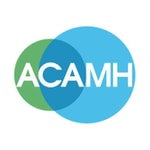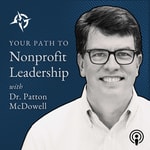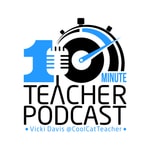'Mind the Kids': an ACAMH podcast – Details, episodes & analysis
Podcast details
Technical and general information from the podcast's RSS feed.

'Mind the Kids': an ACAMH podcast
The Association for Child and Adolescent Mental Health
Frequency: 1 episode/8d. Total Eps: 358

Recent rankings
Latest chart positions across Apple Podcasts and Spotify rankings.
Apple Podcasts
🇬🇧 Great Britain - socialSciences
01/08/2025#17🇬🇧 Great Britain - socialSciences
31/07/2025#14🇬🇧 Great Britain - science
31/07/2025#97🇬🇧 Great Britain - socialSciences
30/07/2025#17🇬🇧 Great Britain - socialSciences
29/07/2025#24🇬🇧 Great Britain - socialSciences
28/07/2025#13🇬🇧 Great Britain - science
28/07/2025#99🇬🇧 Great Britain - socialSciences
27/07/2025#18🇬🇧 Great Britain - socialSciences
26/07/2025#25🇬🇧 Great Britain - socialSciences
25/07/2025#29
Spotify
No recent rankings available
Shared links between episodes and podcasts
Links found in episode descriptions and other podcasts that share them.
See allRSS feed quality and score
Technical evaluation of the podcast's RSS feed quality and structure.
See allScore global : 32%
Publication history
Monthly episode publishing history over the past years.
Intergenerational Consequences of Racism in the United Kingdom
mardi 27 août 2024 • Duration 24:28
In this Papers Podcast, Dr. Yasmin Ahmadzadeh discusses her co-authored CAMH journal paper ‘Intergenerational consequences of racism in the United Kingdom: a qualitative investigation into parents’ exposure to racism and offspring mental health and well-being’ (https://doi.org/10.1111/camh.12695).
Yasmin was the principal investigator on the TRADE project, which stands for ‘Transmission of experiences of Racism, Anxiety and Depression in families’.
There is an overview of the paper, methodology, key findings, and implications for practice.
Discussion points include:
- Definition of racism, what is currently known about the experiences of racism and how the experiences are linked to negative mental and physical health outcomes amongst those exposed.
- Why this area has been largely neglected in the research community within the UK, with most studies coming from the US.
- The bidirectional nature of parent and child experiences of racism with indirect effects impacting mental health and wellbeing in both generations.
- The difficulties in families where parent and child approaches differ in relation to active coping strategies and denial of racism.
- How one might reduce harms when talking about racism with children and young people.
- Protective factors and the importance of social cohesion, safe spaces and education.
- Recommendations for CAMH professionals.
#ListenLearnLike
Risk Practices in CAMHS: Exploring Risk Rates and Profiles at Intake
lundi 19 août 2024 • Duration 20:27
In this Papers Podcast, Dr. Barry Coughlan discusses his JCPP Advances paper ‘Risk rates and profiles at intake in child and adolescent mental health services: A cohort and latent class analyses of 21,688 young people in South London’ (https://doi.org/10.1002/jcv2.12246). Barry is the lead author of the paper.
There is an overview of the paper, methodology, key findings, and implications for practice.
Discussion points include:
- The benefits and challenges of using routinely collected data.
- Insight into the ‘brief risk assessment’ measure and how it was implemented.
- Overview of the latent class analyses and how they decided which class to go with.
- How maltreatment and different forms of contextual adversity can interact with different forms of risk at the child level.
- Implications for clinical practices and researchers.
- The role of experts by experience in this research and how they enhanced the research project.
#ListenLearnLike
Chronotype and Depressive Symptoms in Adolescence
lundi 17 juin 2024 • Duration 23:35
In this Papers Podcast, Dimitris Tsomokos discusses his JCPP Advances paper ‘Chronotype and depression in adolescence: Results from a UK birth cohort study’ (https://doi.org/10.1002/jcv2.12245). Dimitris is the first author of the paper.
There is an overview of the paper, methodology, key findings, and implications for practice.
Discussion points include:
- The bidirectional association between sleep duration and sleep quality and depressive symptoms in adolescence.
- The reason behind using the Millennium Cohort Study (MCS), a large, population-based longitudinal birth cohort, in the study.
- The cross-sectional association between chronotype and depressive symptoms and the differences between the sexes.
- Can a ‘sleep catch-up mechanism’ mitigate risk for depression and are adolescence that are in tune with their circadian rhythms at less risk of depression?
- The implications for policymakers and child and adolescent mental health professionals.
- Gender differences and eveningness.
#ListenLearnLike
Impact of Maternal Depression on Offspring Depression in Emerging Adulthood
mardi 13 décembre 2022 • Duration 14:01
In this podcast, we are joined by social epidemiologist Dr. Rebecca Lacey of the Research Department of Epidemiology and Public Health, University College London,to talk about her JCPP paper “Testing lifecourse theories characterising associations between maternal depression and offspring depression in emerging adulthood: the Avon Longitudinal Study of Parents and Children” (doi.org/10.1111/jcpp.13699). There is an overview of the paper, methodology, key findings, and implications for practice.
Discussion points include;
- With a sensitive period being defined as a point in time when maternal depression might have more of an impact on the child’s mental health, Becca elaborates on the importance of her paper’s assertion that the sensitive period continues through to adolescence.
- Emerging adulthood depressive symptoms were best explained by the accumulation of exposure to maternal depression, and not the infancy-sensitive period model.
- How findings will translate into practice
- Implications of findings for CAMH professionals and other health professionals.
Prevalence and Impact of Social (Pragmatic) Communication Disorders
lundi 5 décembre 2022 • Duration 22:38
In this podcast, we are joined by Professor Courtenay Norbury, Professor of Developmental Disorders of Language and Communications at Psychology and Language Sciences, University of London, and director of the Literacy, Language, and Communication Lab, LiLaC, and Jo Saul, lecturer in Experimental Psychology at the same institution. They discuss their JCPP paper, ‘Prevalence and functional impact of social (pragmatic) communication disorders’, (doi:10.1111/jcpp.13705). There is an overview of the paper, methodology, key findings, and implications for practice.
Discussion points include;
- Providing insight into what the focus of the LiLaC lab is
- What social pragmatic communication disorders (SPCD) are and how they present.
- Social pragmatic deficits rarely occurred in isolation, but often occurred alongside structural language difficulties and/or autism symptoms, they share implications of this
- Recommended changes to better identify, diagnose, and support children with SPCD
- What mental health professionals, and those working in education, should take from their paper
- How to translate the research into practice
- The importance of improving communication between mental health and speech and language professionals.
Sleep and Daily Suicidal Ideation Among High-Risk Adolescents and Young Adults
lundi 28 novembre 2022 • Duration 27:39
In this podcast, we are joined by Dr. Jessica Hamilton, Assistant Professor in the Department of Psychology, Rutgers University, New Jersey, and Dr. Peter Franzen, Associate Professor of Psychiatry and Clinical and Translational Science at the University of Pittsburgh in Pennsylvania, discuss their JCPP paper, ‘Sleep influences daily suicidal ideation through affective reactivity to interpersonal events among high-risk adolescents and young adults’ (doi:10.1111/jcpp.13651). There is an overview of the paper, methodology, key findings, and implications for practice.
Discussion points include;
- How they went about examining sleep as a proximal risk factor for suicide
- Their finding that short sleep may impair how teens can regulate their already intense emotions
- Implications of their findings are for CAMH professionals
- How they envisage their findings will translate into practice
- Resources that listeners may find of use
- Advice for parents or carers, CAMH professionals and policy makers.
Psychological Legacies of Intergenerational Trauma
lundi 21 novembre 2022 • Duration 26:29
In this podcast, we are joined by Dr. Andrew Wooyoung Kim, Assistant Professor in biological anthropology at the University of California.
Andrew is the first author of the Journal of Child Psychology and Psychiatry (JCPP) paper ‘Psychological legacies of intergenerational trauma under South African apartheid: Prenatal stress predicts greater vulnerability to the psychological impacts of future stress exposure during late adolescence and early adulthood in Soweto, South Africa’ (doi: 10.1111/jcpp.13672), which is the focus of today’s podcast.
Andrew sets the scene by providing a brief introduction of how he came to be interested in this area of research, before turning to the paper itself and sharing a brief overview of the paper.
Andrew discusses the methodology used, including the challenges faced during the data collection, and shares the main findings from the paper.
Andrew then expands upon two interesting findings; the first being the finding that social support did not moderate the association between prenatal stress and psychiatric outcomes, and the second being that the prenatal stress exposure during apartheid is not directly associated with greater psychiatric morbidity during late adolescence.
With maternal age and past household adversity having been found to have an impact, Andrew also elaborates on these findings and their implications.
Furthermore, Andrew shares what the implications are of his findings for CAMH professionals, and comments on what role we should all be playing in recognising and addressing the ongoing legacies of colonialism, structural violence, and historical traumas, such as apartheid, in order to prevent future mental health inequities from emerging.
Bullying and Mental Health: Impact and Interventions
lundi 14 novembre 2022 • Duration 29:10
14 – 18 November is Anti-Bullying Week. For this podcast, we are joined by Dr. Sînziana Oncioiu, Professor Lucy Bowes and Carolina Guzman Holst to discuss bullying in children and adolescents. Sînziana, Lucy, and Carolina are all members of the Oxford lab of Risk and Resilience, Genes and Environment, known as the oRANGE Lab, at the University of Oxford.
As the principle investigator at the oRANGE Lab, Lucy begins by highlighting the main focus of the oRANGE Lab and providing insight into the definition of bullying.
Sînziana follows by discussing how prevalent bulling is, before Lucy comments on the various roles that young people take on when bullying occurs and why it is important to understand them.
Sînziana explores what is known about the link between bullying and mental health, with Carolina then commenting on how the relationship between bullying victimisation and mental health played out during the COVID-19 pandemic in the UK.
Lucy and Sînziana also discuss what makes some young people and children more likely to be targets for bullies as well as what factors make some people more likely to be perpetrators.
Carolina provides insight into the effectiveness of anti-bullying interventions and their impact on mental health, plus explores whether the current interventions are enough to support those most at risk.
With the oRANGE Lab having incorporated some innovative designs and technologies, such as virtual reality, into their studies, Lucy shares some examples and comments on what risk and protective factors have been identified by their research that help determine how a young person will fare if they’ve been bullied.
Lucy then comments on how social norms and other systemic factors influence the prevalence rates of bulling before Carolina shares what the implications are of their findings for teachers and other people in education, and also for CAMH professionals.
Furthermore, given that we know bulling is a major public mental health risk, Lucy shares what her message is to policymakers.
Suicidal Ideation During Adolescence: Genetic Liability & Negative Life Events
lundi 7 novembre 2022 • Duration 20:05
In this podcast, we are joined by Dr. Séverine Lannoy, postdoctoral researcher in the Department of Psychiatry at the Virginia Institute for Psychiatric and Behavioural Genetics.
Séverine is the first author of the Journal of Child Psychology and Psychiatry (JCPP) Open Access paper ‘Suicidal ideation during adolescence: The roles of aggregate genetic liability for suicide attempts and negative life events in the past year’ (doi.org/10.1111/jcpp.13653), which is the focus of today’s podcast.
Séverine sets the scene by sharing a brief overview of the paper and providing insight into the methodology used, before turning to the key findings.
With the paper’s results supporting the role of negative life events in suicidal ideation in both boys and girls, Séverine comments on what type of negative events stood out as being particularly impactful and what the implications of this paper are for professionals who work with young people.
Séverine then turns to the gender differences highlighted by the paper, including that for girls, suicidal ideation was associated with both negative life events and aggregate genetic liability (but not the latter for boys) and discusses how she accounts for this difference between boys and girls.
Furthermore, Séverine expands upon the interplay of genes and the environment in risk for suicidal ideation, as well as discusses how CAMH professionals might translate her findings into practice to improve risk assessment and screening procedures.
Mental health of young asylum seekers and refugees in the context of COVID-19
mardi 1 novembre 2022 • Duration 24:47
In this podcast, we are joined by Dr. Matthew Hodes, Consultant Child and Adolescent Psychiatrist and Honorary Clinical Senior Lecturer in Child and Adolescent Psychiatry at Imperial College London.
The focus of this podcast is on the mental health of young refugees and asylum seekers.
To set the scene, Matthew starts by providing us with a brief introduction of how he came to be interested in the mental health of young refugees and asylum seekers and comments on the impact of psychological distress and psychiatric disorder as it relates to child and young asylum seekers and refugees.
Matthew discusses his Editorial Perspective, published in the CAMH, on the mental health of young asylum seekers and refugees in the context of COVID-19, and provides insight into what additional burdens the pandemic has posed to child and adolescent asylum seekers and refugees.
With his Editorial Perspective having suggested that services are increasingly inadequate for asylum seekers and refugees, Matthew comments on access to and provision of services for asylum seekers and refugees, as well as the types of barriers and challenges that affect this group.
Matthew then discusses what he has learnt from his experience as a practitioner, and from evidence-based research, in terms of need and best practice when it comes to the mental wellbeing of child and adolescent refugees and asylum seekers, plus shares his advice for CAMH professionals working with this group.
Having touched on hostile government policies, Matthew also comments on what socioeconomic interventions are known to support young asylum seekers and refugees and shares his message to policy makers.
Furthermore, with ‘Healing’ as the theme of Refugee Week 2022 (20 – 26 June), Matthew comments on how optimistic he is that healing is possible for dislocated children and young people.









